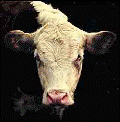Animal Science, Department of

Department of Animal Science: Dissertations, Theses, and Student Research
First Advisor
Paul J. Kononoff
Committee Members
James C. MacDonald, Samodha C. Fernando
Date of this Version
5-2025
Document Type
Thesis
Citation
A thesis presented to the faculty of the Graduate College at the University of Nebraska in partial fulfillment of requirements for the degree of Master of Science
Major: Animal Science
Under the supervision of Professor Paul J. Kononoff
Lincoln, Nebraska, May 2025
Abstract
Improved methane (CH4) mitigation strategies are needed to achieve the greenhouse gas emission goals of the dairy industry. The first experiment was conducted to evaluate the effects of feeding black cumin (Nigella sativa) seed oil and acetate (BCA) on CH4 production and whole-animal energy utilization. Twelve dry Jersey cows were used in a 2-period crossover design study with 28d periods. The BCA treatment was compared to a control diet with corn oil. Both BCA and corn oil were added to the base diet as a top dress. Results from this study did not show any difference in CH4 production or energy utilization between treatments.
The second experiment was conducted to evaluate the effects of feeding increasing inclusion rates of an algae feed additive containing bromoform (ALB) on CH4 production and whole-animal energy utilization. Twelve lactating Jersey cows were arranged in a quadruplicated 3×3 Latin square design consisting of 3 periods with 28d each. Treatments were randomly assigned and consisted of 0CTRL (base diet with 0% ALB), 0.46LOW (base diet with 0.46% ALB), and 0.93HIGH (base diet with 0.93% ALB). Increasing inclusion of ALB linearly decreased CH4 production. No differences were observed in dry matter intake (DMI) or energy corrected milk (ECM).
Advisor: Paul J. Kononoff
Included in
Agriculture Commons, Dairy Science Commons, Large or Food Animal and Equine Medicine Commons, Veterinary Physiology Commons


Comments
Copyright 2025, Shan C. Sherwood. Used by permission